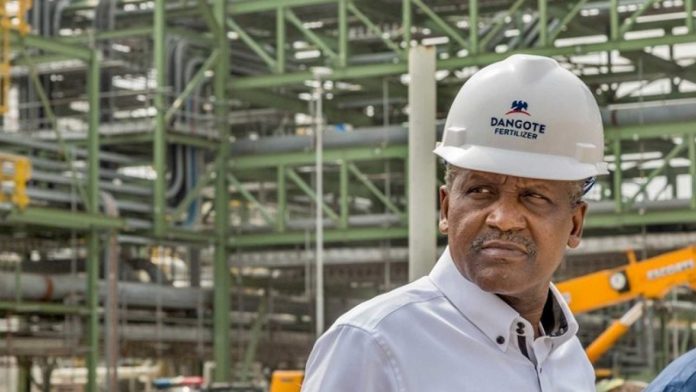The vice president of Dangote Oil and Gas Industries, Mr. Devakumar Edwin, has charged that international oil companies (IOCs) in Nigeria are attempting to obstruct the Dangote Oil Refinery and Petrochemicals’ ability to survive. On Sunday, Edwin informed the reporters in Lagos.
Edwin said that by putting up a high premium price over the market price, the IOCs were willfully and deliberately impeding the refinery’s attempts to purchase local crude. According to him, this compelled Dangote to acquire crude at exorbitant prices from nations all the way up to the United States.
Edwin bemoaned the actions of the Nigerian Midstream and Downstream Petroleum Regulatory Authority (NMDPRA), which arbitrarily granted licenses to importers of refined petroleum products that were unclean. He said, “The federal government issued 25 licenses to build refineries, and we are the only ones that delivered on promise.
“In effect, we deserve every bit of support from the government. It is good to note that from the start of production, more than 3.5 billion litres, which represents 90 percent of our production, have been exported.
“We are calling on the federal government and regulators to give us the necessary support in order to create jobs and prosperity for the nation,” he said.
According to him, “While the Nigerian Upstream Petroleum Regulatory Commission (NUPRC) is trying its best to allocate the crude for us, the IOCs are deliberately and willfully frustrating our efforts to buy the local crude.
“It would be recalled that the NUPRC recently met with crude oil producers as well as refinery owners in Nigeria in a bid to ensure full adherence to Domestic Crude Oil Supply Obligations (DCSO), as enunciated under Section 109(2) of the Petroleum Industry Act (PIA).
“It seems that the IOCs’ objective is to ensure that our petroleum refinery fails. Either they are deliberately asking for a ridiculous or enormous premium or they simply state that crude is not available.
“At some point, we paid six dollars over and above the market price. This has forced us to reduce our output as well as import crude from countries as far as the US, increasing our cost of production.
“It appears that the objective of the IOCs is to ensure that Nigeria remains a country that exports crude oil and imports refined petroleum products.
“They (IOCs) are keen on exporting the raw materials to their home countries, creating employment and wealth for their countries, adding to their GDP, and dumping the expensive refined products into Nigeria, thus making us dependent on imported products,” he added.
Edwin said: “It is the same strategy the multinationals have been adopting in every commodity, making Nigeria and Sub-Saharan Africa to be facing unemployment and poverty while they create wealth for themselves at our expense.
“This is exploitation—pure and simple. Unfortunately, the country is also playing into their hands by continuing to issue import licenses, at the expense of our economy and at the cost of the health of the Nigerians who are exposed to carcinogenic products.
“In spite of the fact that we are producing and bringing out diesel into the market, complying with ECOWAS regulations and standards, licenses are being issued, in large quantities, to traders who are buying the extremely high sulphur diesel from Russia and dumping it in the Nigerian market.
“Since the US, EU, and UK imposed a Price Cap Scheme on February 5, 2023, on Russian Petroleum Products, a large number of vessels are waiting near Togo with Russian ultra-high sulphur diesel, and they are being purchased and dumped into the Nigerian market.
“In fact, some of the European countries were so alarmed about the carcinogenic effect of the extra-high sulphur diesel being dumped into the Nigerian market that countries like Belgium and the Netherlands imposed a ban on such fuel being exported from their countries into West Africa recently.
“It is sad that the country is giving import licenses for such dirty diesel to be imported into Nigeria when we have more than adequate petroleum refining capacity locally,” he said.













